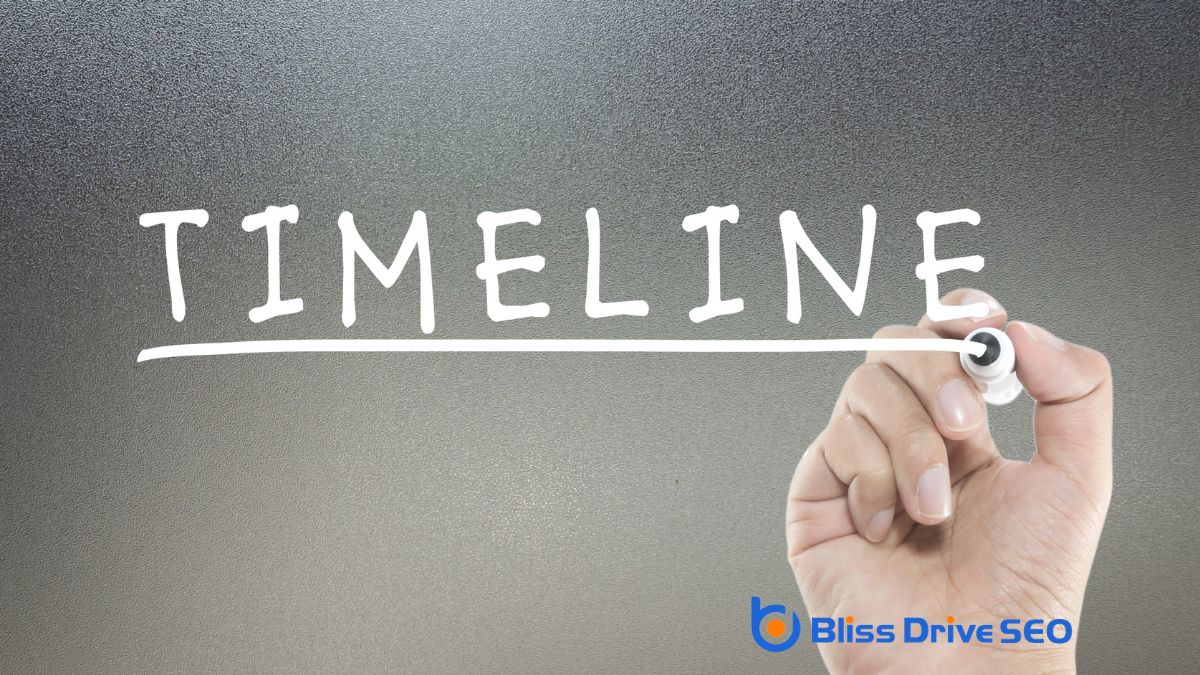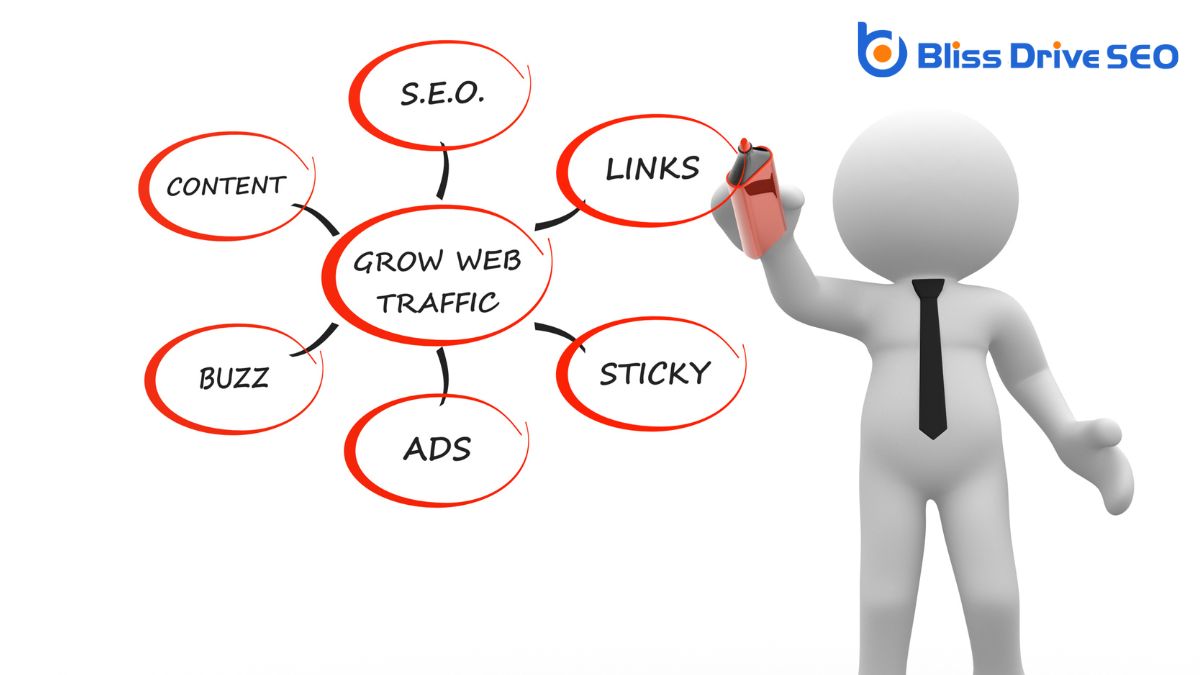Learn More About Us

You'll generally notice SEO results within three to six months, but several factors can influence this timeline. The age and authority of your website, along with its technical health, play significant roles. Regularly updating with high-quality content that's informative and engaging boosts search visibility. Keyword difficulty also matters; targeting lower-difficulty keywordsWords or phrases that users type into search engines to find information. could yield quicker progress. Technical aspects, like site speed and mobile-friendliness, can impact your SEO success. By examining user behavior through tools like Google AnalyticsA web analytics service offered by Google that tracks and reports website traffic., you'll track your progress effectively. To get a deeper understanding of each factor, there's more valuable information to explore.

When considering the effectiveness of SEO, timelines can vary greatly due to several key factors.
First, the age and authority of your website play a significant role. If your site is relatively new, gaining traction might take longer compared to established websites. Search engines tend to favor websites with a history of reliability and quality content.
Next, the quality of your content is essential. Regularly updating your site with relevant, well-researched content increases your chances of ranking higher. Search engines prioritize content that answers users' questions effectively and is engaging. So, focus on crafting articles or posts that genuinely add value to your audience.
Your website's technical health also affects SEO timelines. Make sure your site is optimized for speed and mobile-friendliness and has a clear structure. Technical issues can hinder search engines from properly indexingThe process of adding web pages into a search engine's database. your pages, delaying results.
Understanding the concept of keyword difficulty is crucial for any effective SEO strategy. You need to grasp how challenging it will be to rank for a specific keyword. Keyword difficulty is like a compass guiding your SEO efforts, helping you choose the right battles to fight. It hinges on how competitive a keyword is, based on factors like the number of competing websites and their authority.
When analyzing keyword difficulty, you should look at metrics provided by SEO toolsSoftware and online tools used for various aspects of SEO, such as keyword research and link buildin.... These tools usually score keywords on a scale, indicating how tough it is to rank on the first page of search engine results. A higher score means stiffer competition and more effort required to achieve a top spot.
To effectively gauge keyword difficulty, you'll need to assess your website's current authority. If your site is new, targeting high-difficulty keywords mightn't yield quick results. Instead, focus on lower-difficulty keywords that have decent search volume and match your audience's needs.
High-quality content is the cornerstone of successful SEO. When you create content that's valuable and relevant to your audience, it naturally attracts more visitors. Search engines, like Google, prioritize pages that provide users with exceptional information. So, if you want your site to rank higher, focus on developing content that answers questions, solves problems, or entertains your audience.
Quality content engages readers, encouraging them to spend more time on your site. This increased dwell time signals to search engines that your content is worth promoting. Additionally, informative and engaging content is more likely to be shared, earning you valuable backlinksLinks from other websites pointing to your website, crucial for SEO., which further boosts your rankingsThe position at which a website appears in the SERP..
Remember, content isn't just about text. Incorporate images, videos, and infographicsVisual representations of information, data, or knowledge intended to present complex information qu... to make your content more dynamic and appealing. This not only enhances user experience but also keeps visitors coming back for more.
Consider your audience's needs and interests when creating content. Use language that resonates with them, and make sure your content is easy to understand. By focusing on quality, you'll build trust with your audience and improve your SEO efforts, ultimately seeing results faster.
While quality content forms the backbone of effective SEO, technical optimization guarantees that your site is accessible and understandable to search engines. You can't overlook the significance of a technically sound website. It guarantees search engines can easily crawl and index your pages, which directly impacts your visibility in search results.
Start by checking your site's loading speed. Faster sites not only enhance user experience but also rank better. Compress images, leverage browser caching, and minimize CSS and JavaScript files to improve speed.
Next, verify your site is mobile-friendly. With the majority of searches happening on mobile devices, a responsive designA web design approach that makes web pages render well on a variety of devices and window or screen ... is essential. Use Google's Mobile-Friendly TestA tool that evaluates how well a website performs on mobile devices. to check your site's compatibility.
Don't forget about secure connections—use HTTPS. It's a ranking factor and helps build trust with users. Additionally, create an XML sitemapA file that lists a website’s important pages to ensure search engines can find and crawl them. and a robots.txtA file that tells search engine crawlers which pages or files they can or cannot request from your s... file. These guide search engines to your important pages and instruct them on what to crawl.

To truly gauge the effectiveness of your SEO efforts, you must track and measure success diligently. Begin by setting clear, measurable goals. Are you aiming to increase traffic, improve conversionThe completion of a desired action by a referred user, such as making a purchase or filling out a fo... rates, or enhance engagementThe interactions that users have with a brand’s content on social media.? Once defined, tools like Google AnalyticsThe systematic computational analysis of data or statistics to gain insights and support decision-ma... will be used to monitor these metrics. You'll gain insights into user behavior, helping you understand what's working and what needs improvement.
Focus on key performance indicators (KPIs) such as organic trafficVisitors who come to a website through unpaid search engine results., bounce rateThe percentage of visitors who leave a website after viewing only one page., and average session duration. Organic traffic shows how well your pages rank in search engines, while bounce rate and session duration reflect user satisfaction. If users leave quickly, consider revisiting content quality or user experience.
Don't overlook keyword rankings. They're a direct indicator of your SEO success. Regularly check your positions for targeted keywords to see if your strategies are paying off. Tools like SEMrush or Ahrefs can simplify this process.
In your SEO journey, remember that patience is essential. The timeline for seeing results varies based on factors like keyword difficulty, content quality, and technical optimization. Focus on crafting valuable content and ensuring your site is technically sound. Regularly track your progress and make necessary adjustments. While it might take a few months to see significant changes, persistence pays off. Keep optimizing, and you'll eventually achieve your SEO goals. Stay committed, and success will follow.
